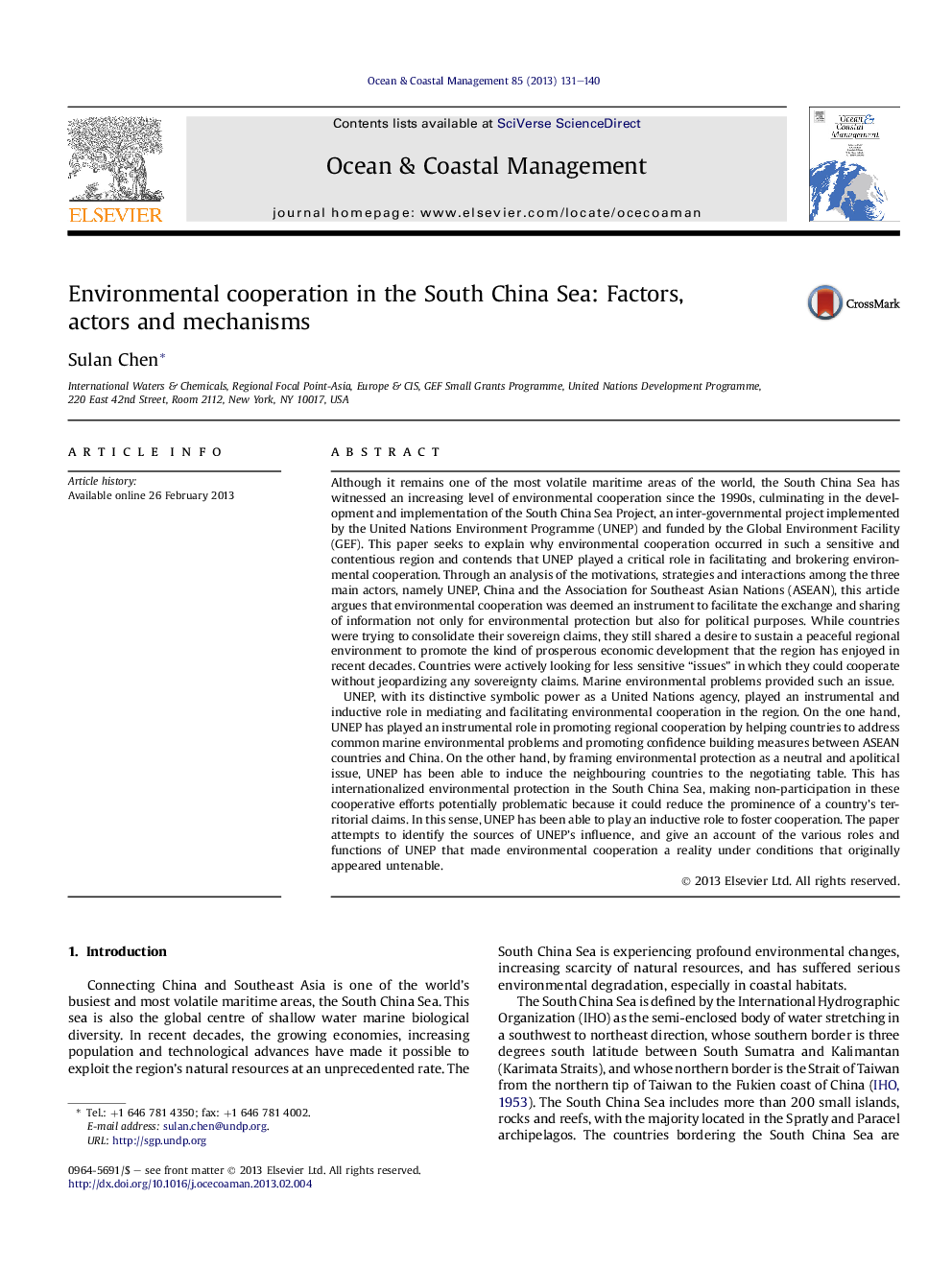| کد مقاله | کد نشریه | سال انتشار | مقاله انگلیسی | نسخه تمام متن |
|---|---|---|---|---|
| 1723783 | 1014822 | 2013 | 10 صفحه PDF | دانلود رایگان |

Although it remains one of the most volatile maritime areas of the world, the South China Sea has witnessed an increasing level of environmental cooperation since the 1990s, culminating in the development and implementation of the South China Sea Project, an inter-governmental project implemented by the United Nations Environment Programme (UNEP) and funded by the Global Environment Facility (GEF). This paper seeks to explain why environmental cooperation occurred in such a sensitive and contentious region and contends that UNEP played a critical role in facilitating and brokering environmental cooperation. Through an analysis of the motivations, strategies and interactions among the three main actors, namely UNEP, China and the Association for Southeast Asian Nations (ASEAN), this article argues that environmental cooperation was deemed an instrument to facilitate the exchange and sharing of information not only for environmental protection but also for political purposes. While countries were trying to consolidate their sovereign claims, they still shared a desire to sustain a peaceful regional environment to promote the kind of prosperous economic development that the region has enjoyed in recent decades. Countries were actively looking for less sensitive “issues” in which they could cooperate without jeopardizing any sovereignty claims. Marine environmental problems provided such an issue.UNEP, with its distinctive symbolic power as a United Nations agency, played an instrumental and inductive role in mediating and facilitating environmental cooperation in the region. On the one hand, UNEP has played an instrumental role in promoting regional cooperation by helping countries to address common marine environmental problems and promoting confidence building measures between ASEAN countries and China. On the other hand, by framing environmental protection as a neutral and apolitical issue, UNEP has been able to induce the neighbouring countries to the negotiating table. This has internationalized environmental protection in the South China Sea, making non-participation in these cooperative efforts potentially problematic because it could reduce the prominence of a country's territorial claims. In this sense, UNEP has been able to play an inductive role to foster cooperation. The paper attempts to identify the sources of UNEP's influence, and give an account of the various roles and functions of UNEP that made environmental cooperation a reality under conditions that originally appeared untenable.
► Political difficulties pose great challenges to environmental cooperation in the SCS.
► Negotiation process of the first inter-governmental project in the SCS documented.
► Key actors, their considerations, and factors of environmental cooperation are outlined.
► Roles of UNEP in facilitating environmental cooperation in the SCS are described.
► Mechanisms of UNEP's influence on environmental cooperation in the SCS are explored.
Journal: Ocean & Coastal Management - Volume 85, Part B, December 2013, Pages 131–140